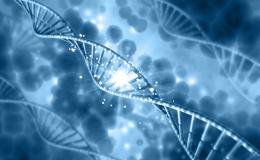What Are the Signs and Symptoms of Esophageal Cancer?
April 13, 2021
Back in the 60s and 70s, the 5-year survival rates for esophageal cancer were low, at only about 5%.

Since then, treatments for the disease have improved greatly, and today, overall 5-year survival rates for esophageal cancer are closer to 20%.1 Esophageal cancer is cancer of the esophagus, or the tube that allows food and liquids to move from your throat down to your stomach, and is more prevalent in men than it is in women. To recognize National Esophageal Cancer Month this April, we highlight the signs and symptoms, types of the disease, and steps you should take if you or someone you care about is experiencing symptoms associated with this type of cancer.
There are two main types of esophageal cancer: adenocarcinoma and squamous cell carcinoma. Adenocarcinomas develop in the glands and often in the lower portion of the esophagus, whereas squamous cell carcinomas begin in the flat cells that make up the lining of the esophagus and usually occur in the upper or middle portions of the esophagus. Interestingly, esophageal cancer adenocarcinomas are more prevalent in the United States, but squamous cell carcinomas are the more common worldwide. Other, more rare types of esophageal cancer are also possible. Your treatment options may change depending on what type of the disease you are diagnosed with.
Like some other types of cancer, early-stage esophageal cancer often has few, if any symptoms. Signs and symptoms of esophageal cancer can include:
- Swallowing difficulties
- Unexplained weight loss
- Increasing indigestion or heartburn
- Chest pain or sensation of pressure or burning in the chest
- Hoarse voice
- Increased coughing
If you or someone you care about is experiencing ongoing symptoms associated with the disease, it is important to schedule an appointment with a doctor.
In some cases, esophageal cancer runs in families. Researchers have discovered mutations, or changes, in several genes that are associated with inherited forms of the disease. Mutations in the gene RHBDF2 cause tylosis with esophageal cancer, which increases the risk of developing the squamous-cell carcinoma type of the disease. Adverse mutations in the BLM gene cause Bloom syndrome, which increases an affected person’s risk of developing squamous cell esophageal cancer, acute myeloid leukemia (AML), acute lymphocytic leukemia (ALL) and other lymph system cancers. Mutations in the FANC gene cause Fanconi anemia and also increase the risk of developing squamous cell esophageal cancer, AML and other cancers. Familial cases of Barrett’s esophagus, a risk factor for esophageal cancer, have also been reported, and researchers are currently investigating gene mutations that may cause inherited forms of the disease.2
If esophageal cancer runs in your family, talk to your doctor about your family history to assess your genetic risk for the disease. Hereditary cancer screenings, such as the ExpedioTM Hereditary Cancer Screening test, are available to screen for mutations in many genes associated with different types of cancer. Establishing the presence of a hereditary cancer mutation before the disease develops allows patients and their physicians to proactively screen for cancers and mitigate specific risks associated with their mutation. With most cancers, early detection can significantly improve a patient’s prognosis. To learn more about ExpedioTM, click here or contact us with any questions you may have regarding genetic screenings.




